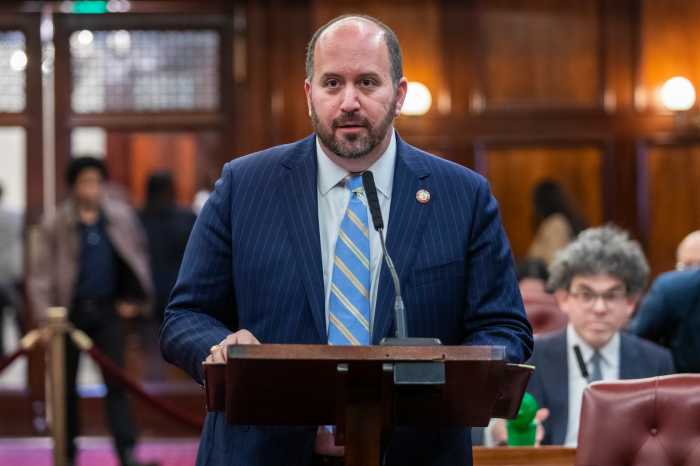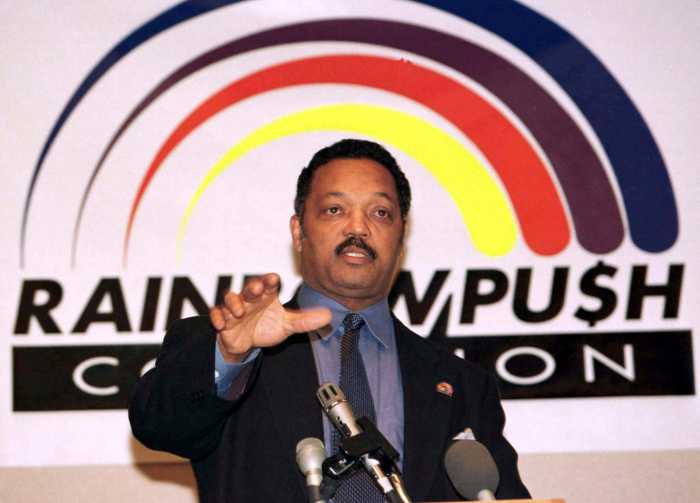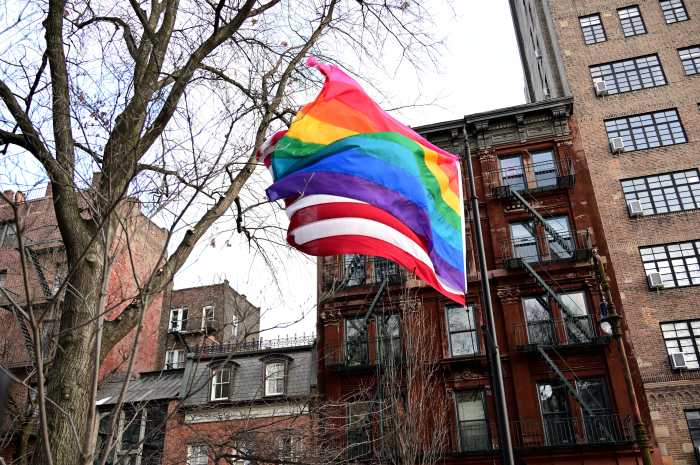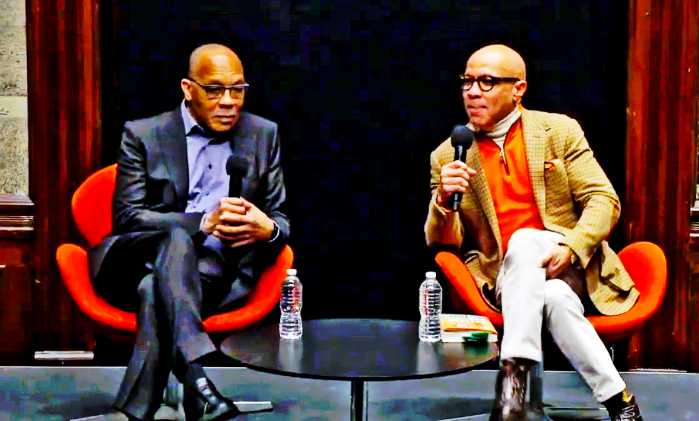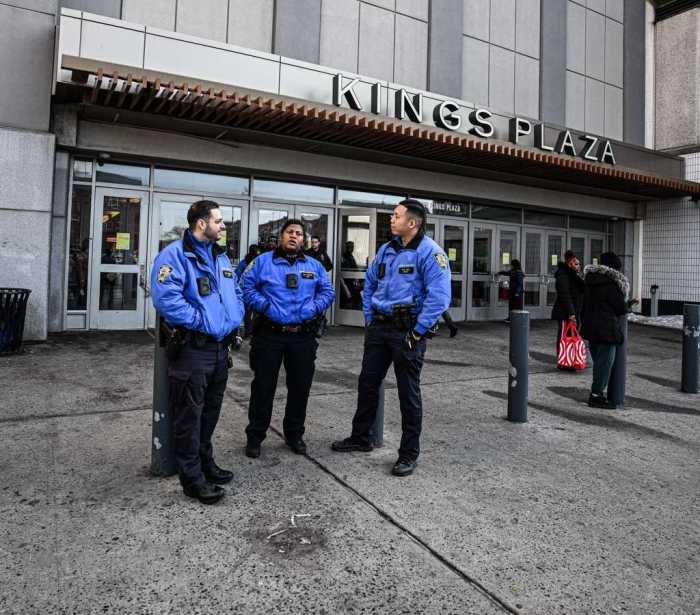LGBTQ issues have not been at the forefront of this year’s pivotal race for New York City mayor, but the city’s next leader will be taking over the reins at City Hall at a time when the federal government is relentlessly targeting transgender individuals and the broader queer community.
How each of the three main mayoral candidates approaches LGBTQ issues is proving to be a critically important factor: In addition to hostility from the federal government, the local queer community will be looking for the next mayor to bolster important LGBTQ community programs against the backdrop of unsteady funding sources, an uptick in mpox cases across the city, and other pressing issues.
As it stands, the most urgent threats facing the city’s LGBTQ community are coming from Washington. Soon after taking office, President Donald Trump signed several executive orders impacting the city’s LGBTQ community, including one order vowing to slash federal funding for trans-inclusive healthcare providers. That order prompted multiple New York City-based private hospitals to cancel appointments or otherwise withhold care for some trans patients seeking gender-affirming care.
The president’s early executive orders also stipulated that the administration would no longer recognize transgender individuals, which led the National Park Service to scrub the T and Q from the Stonewall National Monument’s website and even remove the word “bisexual” from the same site.
Most recently, the president slashed millions of dollars in federal education funding for New York City in retaliation for the city’s trans-inclusive policies.
At the same time, the next mayor will have their own opportunity to influence the city’s budget at the local level, and those decisions will also impact the city’s services. Last year, for example, non-profits sounded the alarm when the city proposed slashing millions in funding for HIV/AIDS services, only to reverse course in the face of pressure.
The community also seeks reassurance that the next mayor will stand up for their basic rights — another timely issue in light of Mayor Eric Adams’ recent criticism of inclusive bathroom policies and his unsuccessful efforts to change those policies after realizing that state and city law protect individuals on the basis of gender identity and expression.
New Yorkers will have three main candidates to consider at the polls: Frontrunner Zohran Mamdani, a New York State assemblymember who is the Democratic nominee; former Gov. Andrew Cuomo, who lost the Democratic primary but opted to run in the general election; and Republican nominee Curtis Sliwa, who lost the 2021 mayoral election to Mayor Eric Adams.
ZOHRAN MAMDANI
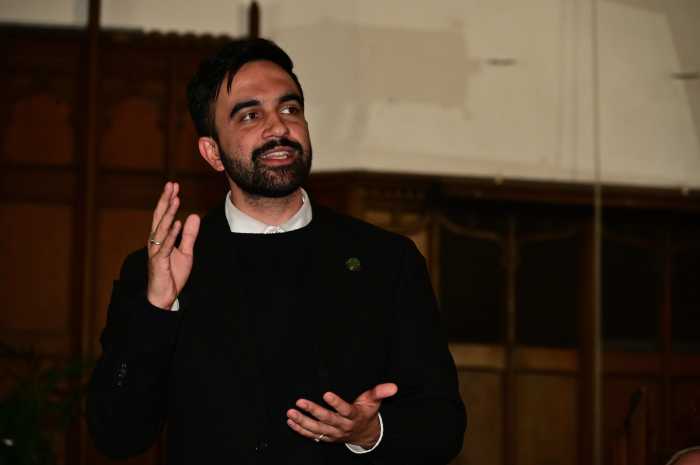
Mamdani, who was first elected to the State Assembly in 2020, attended multiple LGBTQ forums during the Democratic primary race for mayor, while Cuomo, who also ran, did not attend those forums. Sliwa wouldn’t have participated in those events anyway because he did not run in the Democratic primary.
During one of those mayoral forums — a May 1 event at Red Eye NY, an LGBTQ coffee and nightlife venue — Mamdani strongly criticized the private hospitals that pulled back on gender-affirming care. He said at the time that if those hospitals, including NYU Langone, continued to waver on gender-affirming care, the city should “explore” whether those hospitals should continue to be exempt from property taxes.
At the same forum, Mamdani called for $65 million in government funding to compensate for the potential loss of Medicaid funding for gender-affirming care.
Mamdani notably boasts a six-page LGBTQ platform featuring plans to expand and protect gender-affirming care, strengthen sanctuary city policies, and create an Office of LGBTQIA+ Affairs that he says would be responsible for steering $87 million in funding towards housing programs, mental health services, trans-led organizations, workforce investments, healthcare, education, and public defense and legal support for the LGBTQ community.
Mamdani also seeks to empower the Civilian Complaint Review Board (CCRB) to make their determinations binding. The CCRB substantiated charges against the police officers who were involved in the 2019 fatal shooting of out gay man Kawaski Trawick, but the officers ultimately did not face discipline.
Mamdani’s rival, Cuomo, criticized him after a recent New York Post report highlighted a photo Mamdani took with anti-LGBTQ Ugandan Deputy Prime Minister Rebecca Kadaga. Mamdani said he was “unaware” of the politician’s politics on that issue, according to the New York Post. Cuomo, meanwhile, was recently endorsed by anti-LGBTQ former Bronx Councilmember and State Senator Rubén Díaz, Sr., who opposes marriage equality and drew widespread outrage in 2019 when he said the “homosexual community” controlled the City Council.
Mamdani has drawn a visible base of LGBTQ supporters, including a volunteer-led group known as Gays for Zohran, which hosted a National Coming Out Day rally in support of his campaign.
On that same day, Mamdani released a video from the Christopher Street Pier, where he spoke about the legacy of the late trans activist Sylvia Rivera and vowed to take on the Trump administration to protect trans rights, saying his administration would “deploy hundreds of lawyers to combat Trump’s hate, make New York City an LGBTQIA+ sanctuary city, and create an Office of LGBTQIA+ Affairs to allocate millions for youth and adult housing programs, as well as gender-affirming care.”
Among the remaining candidates, Mamdani is the only one to have filled out mayoral questionnaires from the Stonewall Democratic Club of New York City and the Jim Owles Liberal Democratic Club — two citywide LGBTQ political clubs. See his responses to those questionnaires here and here.
ANDREW CUOMO
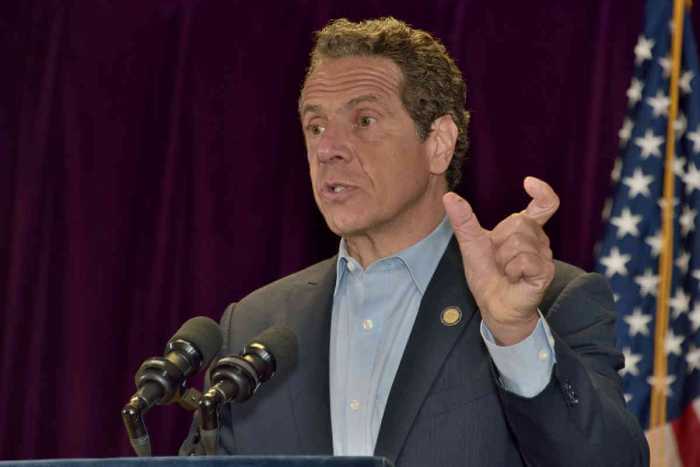
As governor, Andrew Cuomo oversaw an era of major victories for LGBTQ rights in New York State, including the passage of marriage equality, the Gender Expression Non-Discrimination Act, and gestational surrogacy, as well as bans on conversion therapy and the so-called gay and trans panic defense.
In 2021, Cuomo also approved the repeal of a discriminatory loitering law known as a ban on “walking while trans,” which Mamdani co-sponsored. That same year, Cuomo also signed the Gender Recognition Act into law, giving New Yorkers the right to update their state identification and birth certificates with an “x” gender designation. Mamdani also co-sponsored that legislation.
As a mayoral candidate, however, Cuomo did not attend the multiple LGBTQ forums held during the Democratic primary, and, contrary to Mamdani, the former governor’s campaign website has no LGBTQ platform. Cuomo did not fill out questionnaires from two citywide LGBTQ clubs — the Jim Owles Liberal Democratic Club and the Stonewall Democratic Club of New York City.
During a mayoral forum earlier this year, Cuomo was criticized by Mamdani after a video clip posted by Jael Holzman on Bluesky showed the former governor speaking about the results of the 2024 election, saying, “My argument is, no, we lost because we were too far left, because we’re talking about bathrooms and who’s going to play on what team, boys and girls, meanwhile, you lose touch with the issues people care about.”
Cuomo has mentioned his support for the LGBTQ community in some social media posts, including on the first day of Pride Month when he wrote, “Happy Pride Month! I am forever proud of the work my Administration did in the fight for LGBTQ equality. I will always stand with our LGBTQ community and fight for equality and fairness for every New Yorker.”
CURTIS SLIWA
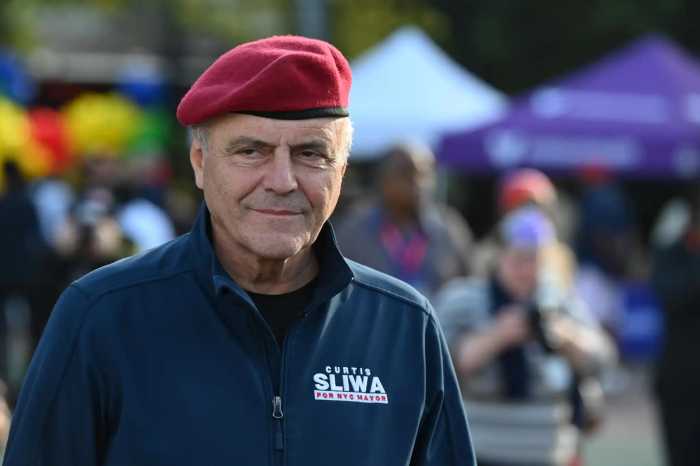
Curtis Sliwa, the Republican nominee, has also said little about LGBTQ issues in the mayoral race, and, like Cuomo, his campaign website’s platform features no dedicated LGBTQ platform. But on Pride Sunday, Sliwa posted on social media about having stood in support of the veterans of the Stonewall Uprising and he recalled the Guardian Angels’ street patrols of Christopher Street to protect LGBTQ people from hate. He also claimed “to have consecrated the first gay marriage in #NYC, at a time when it was illegal and forbidden.”
In 2022, Sliwa criticized the Adams administration in response to widespread outrage over the mayor’s decision to hire three anti-LGBTQ religious leaders to his administration.
“Did we really need an office of Faith Based & Community Partnerships?” Sliwa asked in a post on X. “Look at all the anger & division it is creating. There is supposed to be separation of church & state. Dissolve this new gov’t agency and put your full focus on combating crime.”
LGBTQ CLUB ENDORSEMENTS
LGBTQ political clubs varied in their endorsements during the Democratic primary, which featured ranked-choice voting. The Lambda Independent Democrats of Brooklyn ranked Comptroller Brad Lander as their top choice, while Mamdani was their second choice.
The Stonewall Democratic Club of New York City ranked City Council Speaker Adrienne Adams as their top choice, followed by Lander and Mamdani.
The Jim Owles Liberal Democratic Club initially backed four candidates for mayor — Speaker Adams, Lander, Mamdani, and Queens State Senator Jessica Ramos — but eventually narrowed it down to Mamdani.
POLLING
There has been little polling data on the LGBTQ vote in the mayoral race. A June 12 poll by Honan Strategy Group — taken during the primary — had Mamdani with a slight edge over Cuomo, 25%-21%, though the LGBTQ vote was spread out among many other candidates who have since dropped out. Overall, Mamdani is leading the polls in the general election race for mayor. A Quinnipiac University poll conducted Oct. 3-7 had Mamdani in the lead with 46%, followed by Cuomo, who had 33%, and Sliwa, who had 15%.
The general election is slated for Nov. 4, but early voting begins on Oct. 25. On Election Day, polls are open from 6 a.m. to 9 p.m., while early voting hours vary by day. Visit vote.nyc/elections to learn more.
Gay City News reached out to the Mamdani, Cuomo, and Sliwa campaigns with a series of questions relevant to the LGBTQ community — including how the candidates would protect individuals’ access to gender-affirming care as well as their right to play sports and use bathrooms in accordance with their gender identity. We also asked a question about HIV/AIDS funding. None of the campaigns responded by press time on Oct. 15.


